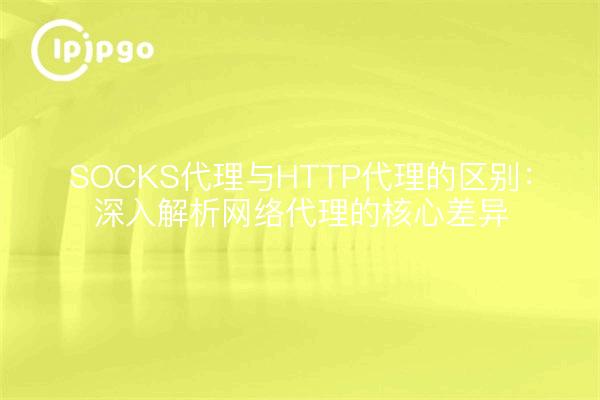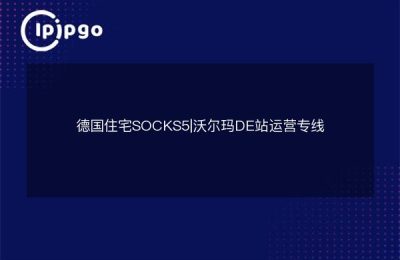
In the vast starry sky of the network, proxy IP is like a twinkling star, guiding us to navigate in the ocean of information. Among them, SOCKS proxy and HTTP proxy are two dazzling pearls, each emitting a unique light.
SOCKS proxy and HTTP proxy, although the same as the proxy technology, but in the function and application of a significant difference. Like a pair of twin brothers, similar in appearance, but each has its own character. Here, let us unveil their mystery.
HTTP Proxy: The Postman of the Networked World
HTTP proxy, as the name suggests, is closely related to the HTTP protocol that we commonly use. It is like a letter carrier in the web world, responsible for delivering and forwarding HTTP requests. Whenever you type a URL in your browser, the HTTP proxy will deliver the request to the target server for you and bring back the response.
The advantage of an HTTP proxy is that it is well-targeted and can handle specific HTTP requests. This makes it excellent in scenarios such as web browsing and data crawling. Imagine you're shopping online and the HTTP proxy is like an attentive shopper helping you find your favorite items.
SOCKS Proxy: The All-Purpose Web Magician
Unlike HTTP proxy, SOCKS proxy is a more generalized proxy protocol. It not only supports HTTP requests, but also handles other types of network traffic, such as FTP, SMTP, and so on. It's like an all-purpose magician, able to perform magic in a variety of situations.
The flexibility of the SOCKS agent makes it useful in many complex network environments. Whether it's game acceleration, video streaming, or internal network management, SOCKS Agent can handle it with ease. It is like a master key that opens countless doors in the network world.
Performance vs. safety: which is better?
HTTP proxies and SOCKS proxies each have their own strengths when it comes to performance and security.HTTP proxies typically provide more efficient web page loading speeds due to their focus on HTTP requests. However, its limitation is its inability to handle other types of web traffic.
SOCKS proxies, on the other hand, are able to provide stable connections in more complex network environments due to their broad applicability. Nevertheless, since SOCKS proxies do not parse traffic, they may not be as secure as HTTP proxies. It is like an experienced driver who can handle a variety of vehicles, but still needs to drive carefully in certain situations.
Choose the right agent for you
When choosing a proxy, it is vital to understand your needs. If your main needs are web browsing and data crawling, an HTTP proxy is definitely a good choice. And if you need to handle multiple types of web traffic, SOCKS proxy is more suitable.
Choosing an agent is like picking a suitable partner for your online journey. Different proxies have different specialties and personalities, and only by understanding their characteristics can you navigate the online world.
Looking ahead: the evolution of agent technology
As technology continues to advance, proxy technology continues to evolve. In the future, we may see more intelligent proxy systems that can automatically adjust proxy settings according to user needs for a more efficient network experience.
HTTP Proxy and SOCKS Proxy will continue to facilitate and support us in this online world full of opportunities and challenges. Whether you are an individual user or an enterprise customer, choosing the right proxy solution will add a touch of color to your online life.
Conclusion: The infinite possibilities of agency
HTTP proxy and SOCKS proxy are not only two technologies, but also two shining stars in the network world. They allow us to swim freely in the sea of information and enjoy the convenience and fun of the network. Whether you are an ordinary user or an enterprise customer, choosing the right proxy service will add unlimited possibilities to your network experience.
Together, let's embrace the convenience and security of the Internet age and start a new chapter of the Internet of our own!








